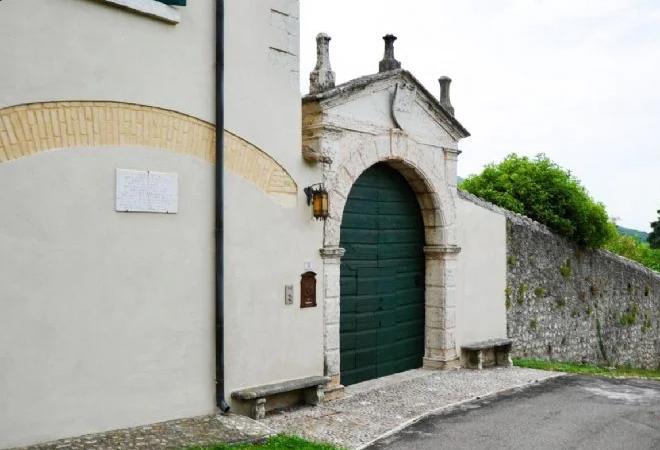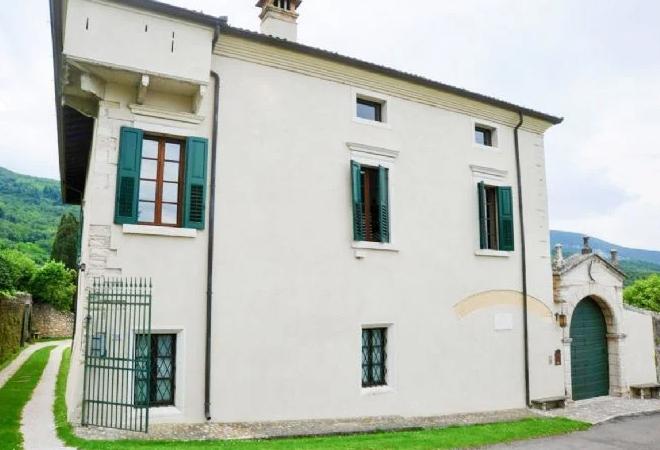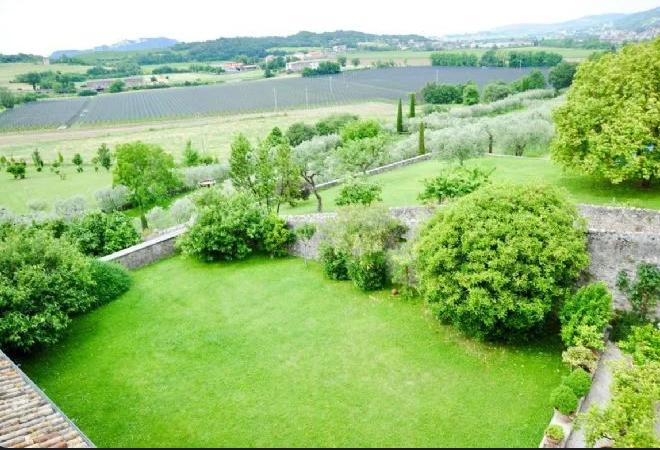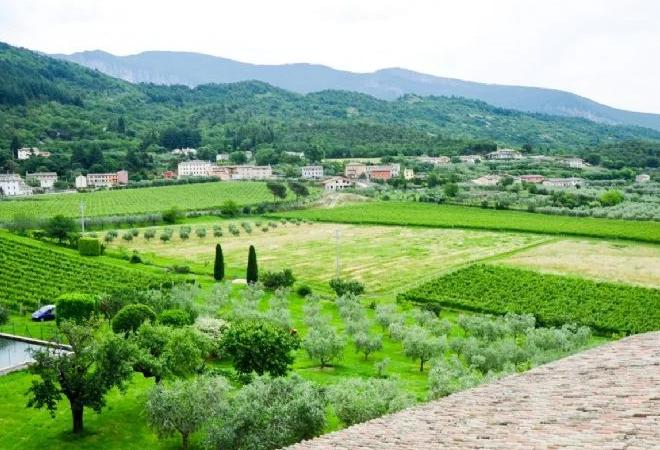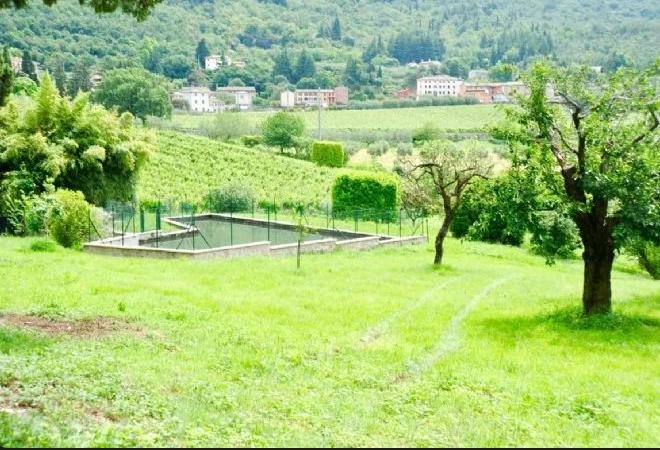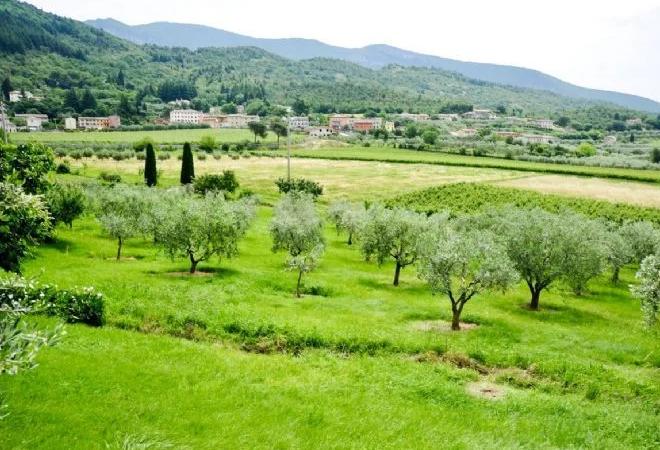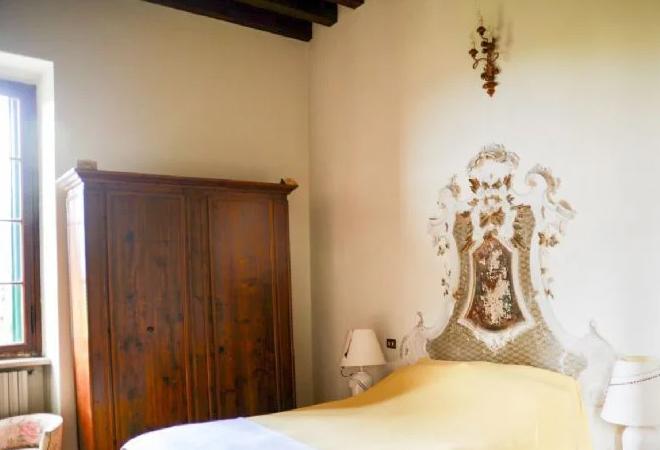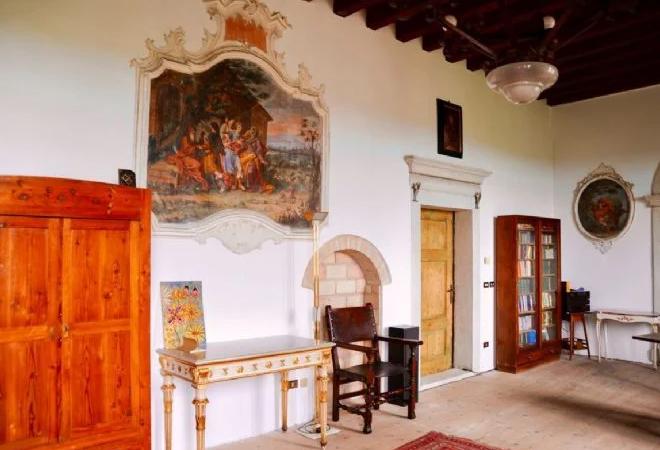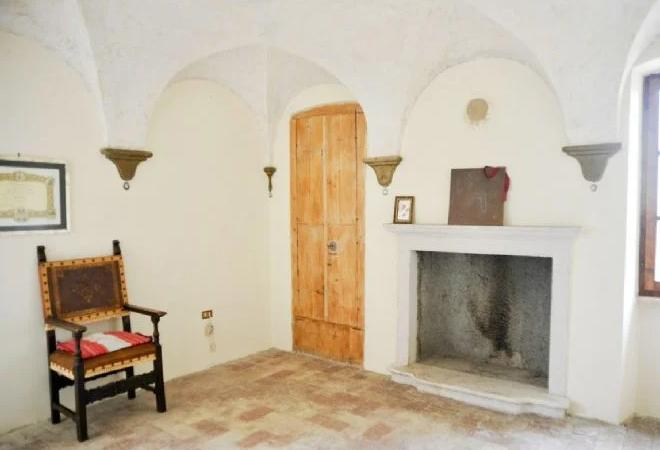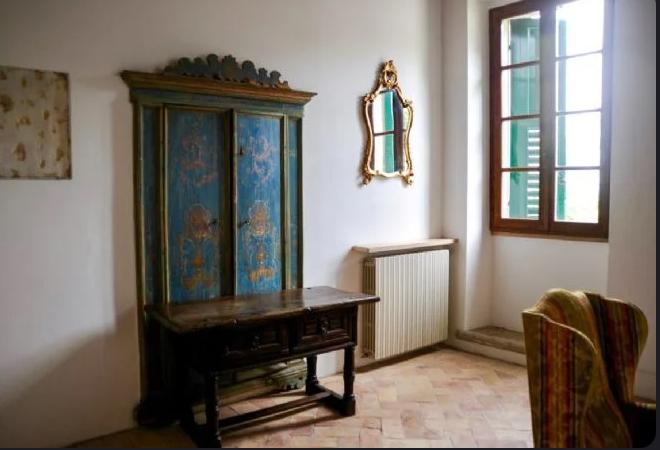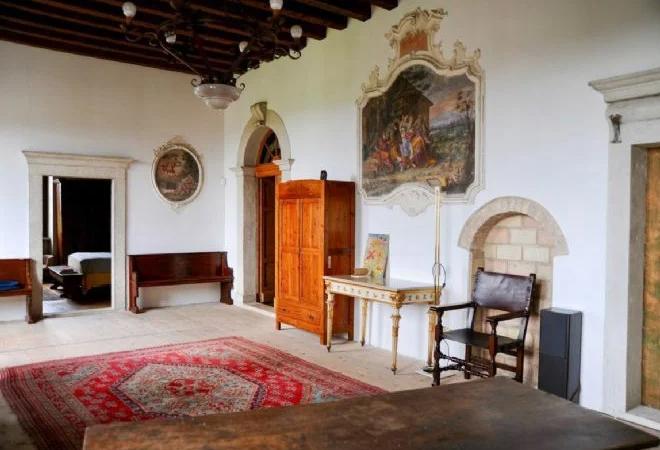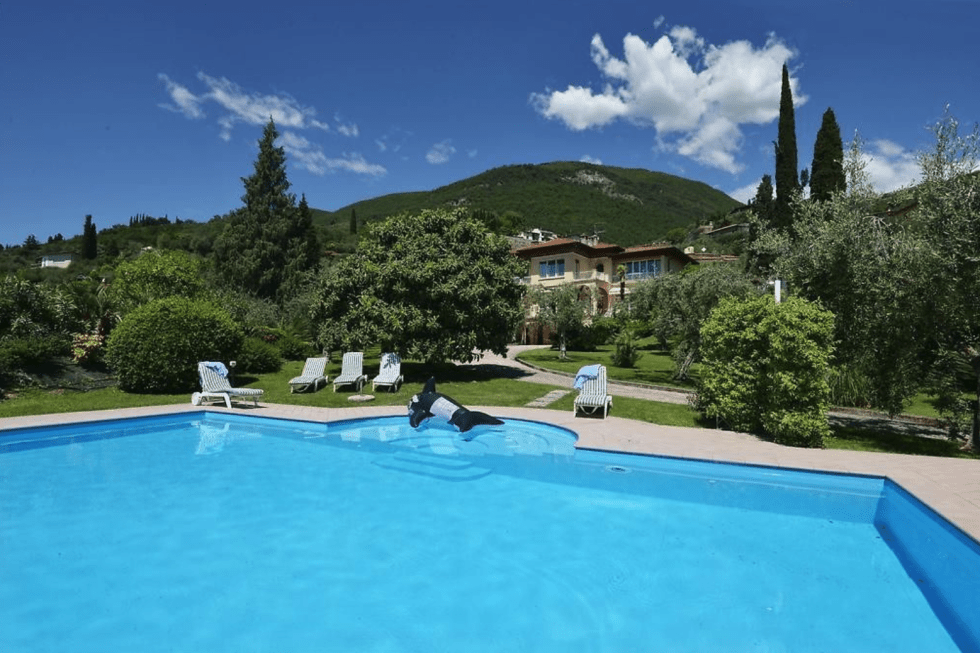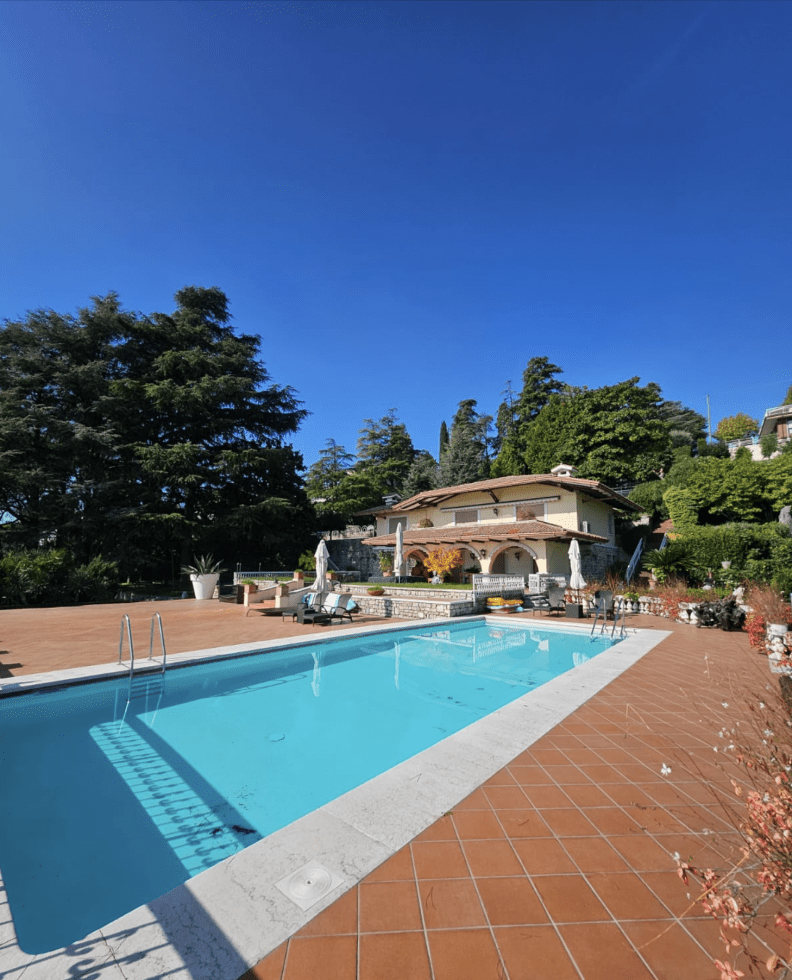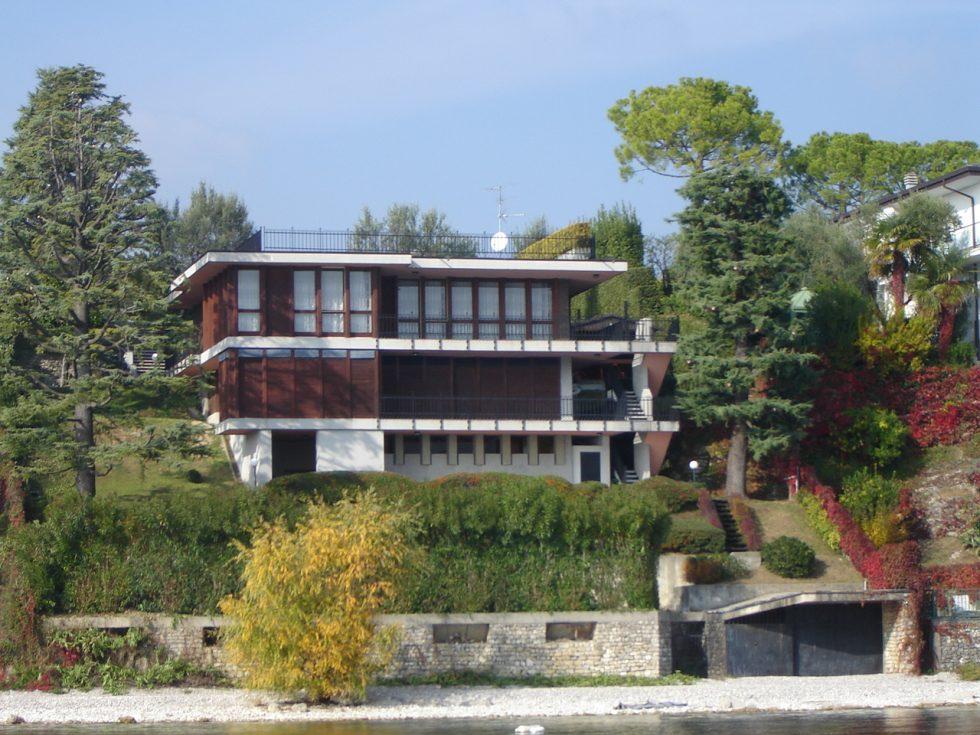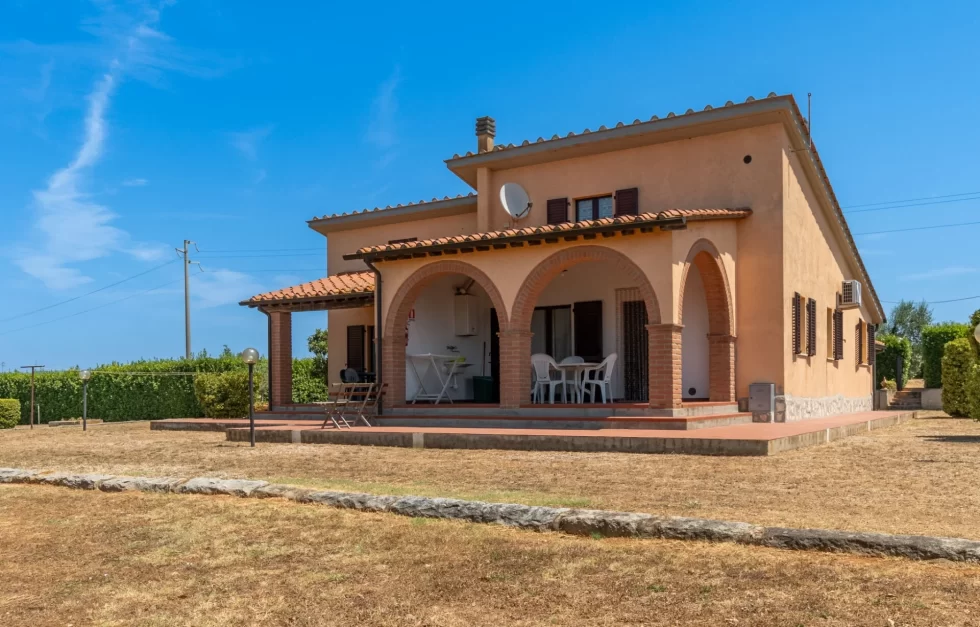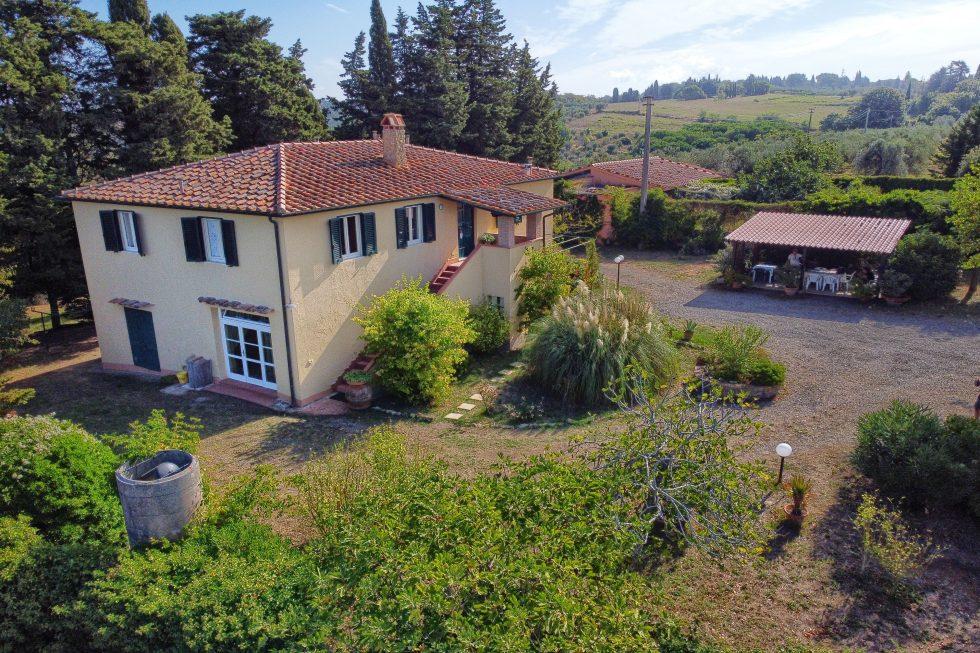Villa Verona
Villa Verona is a building of significant historical and artistic interest, constructed between 1535 and 1789 by a noble Veronese family.
In the early 19th century, it served as the headquarters for Napoleon’s troops, and later hosted Ferdinand I of Bourbon on multiple occasions.
The villa is situated in a valley surrounded by vineyards and orchards between Verona and Lake Garda, with convenient access to major roads. Through the original main gate adorned with the family crest, one enters a beautiful courtyard flanked by a barn dating back to 1650, along with an annex and rustic outbuilding.
On the ground floor of the villa, there is a spacious loggia, vaulted rooms with a magnificent fireplace, a cool cellar, and access to utility rooms.
The first floor features a salon adorned with exquisite frescoes depicting biblical scenes, likely painted by the artist Giovanni Ghirlandini.
The noble floor boasts spacious rooms and corridors, including the master bedrooms. The upper floor offers numerous rooms that could be converted into bedrooms, or the floor could be subdivided into individual residential units.
The entire property is surrounded by vineyards and parks, enhancing its natural charm and historical allure.
€ 4.250.000
Commissions: 4% Excluded VAT
Territorial context
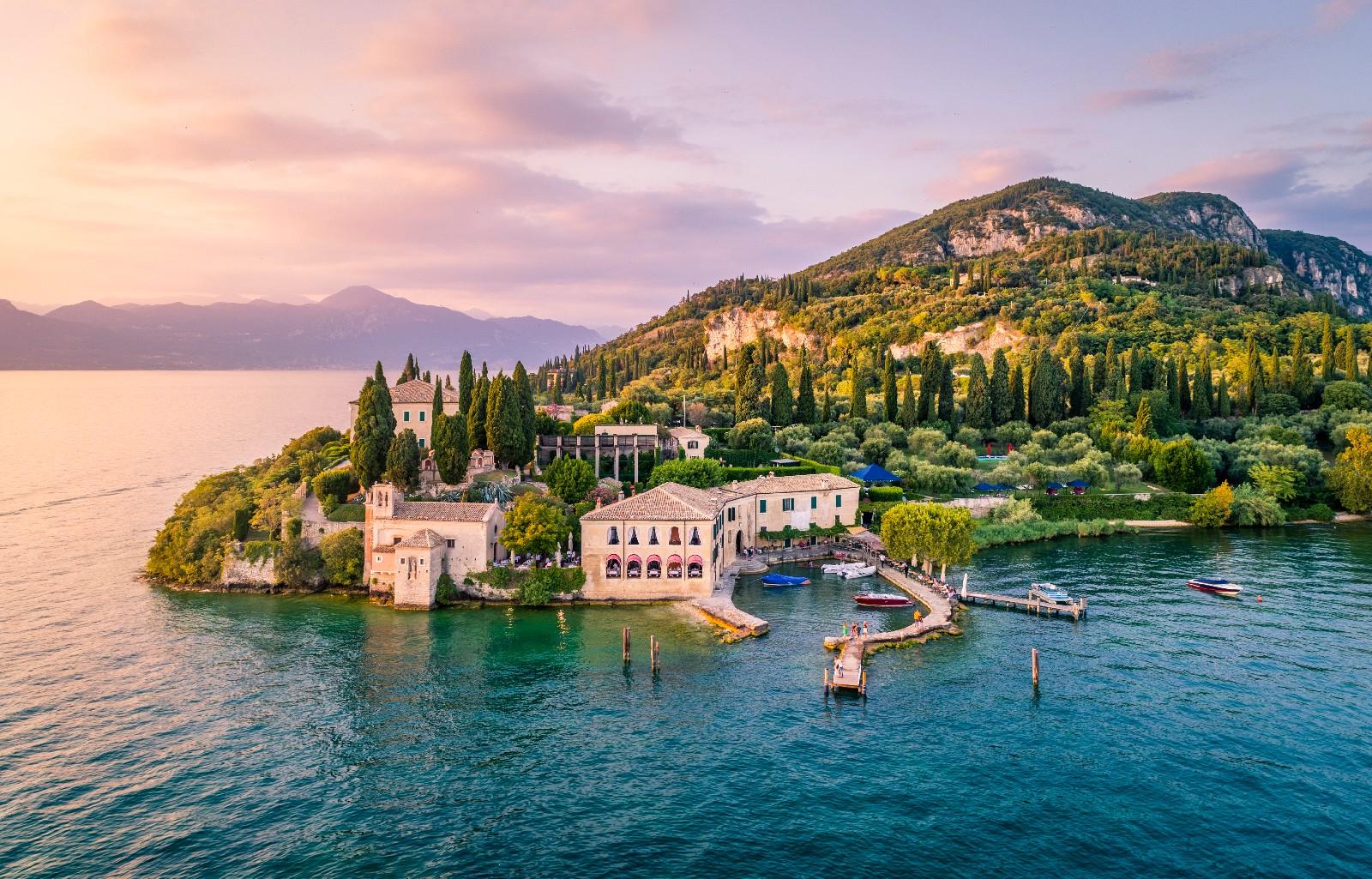
Lake Garda
Lake Garda is a natural wonder stretching between the Alps and the Po Valley, nestled among majestic mountains, lush hills, and picturesque villages that reflect its rich history and culture. Covering an area of about 370 km², it is Italy's largest lake and offers a variety of landscapes and activities, making it a perfect destination for every type of traveler. Its crystal-clear waters and shores dotted with beaches, coves, and small ports invite visitors to engage in water sports such as sailing, windsurfing, kayaking, and diving, allowing adventure enthusiasts to explore the lake from a unique perspective. Its shores are also ideal for relaxing walks, cycling, and trekking, offering breathtaking views and picturesque glimpses at every turn.
The villages overlooking the lake, such as Sirmione, Malcesine, and Riva del Garda, are treasures of history and culture, with medieval castles, ancient churches, and cobbled streets that tell stories of past eras. Each village has its unique character and offers delicious cuisine that celebrates the authentic flavors of Italian cooking, with dishes based on fresh fish, olive oil, local wine, and typical regional products. Lake Garda is a gem of nature that combines scenic beauty, outdoor adventures, culture, and gastronomy in an enchanting setting that captures the heart of everyone who visits.


